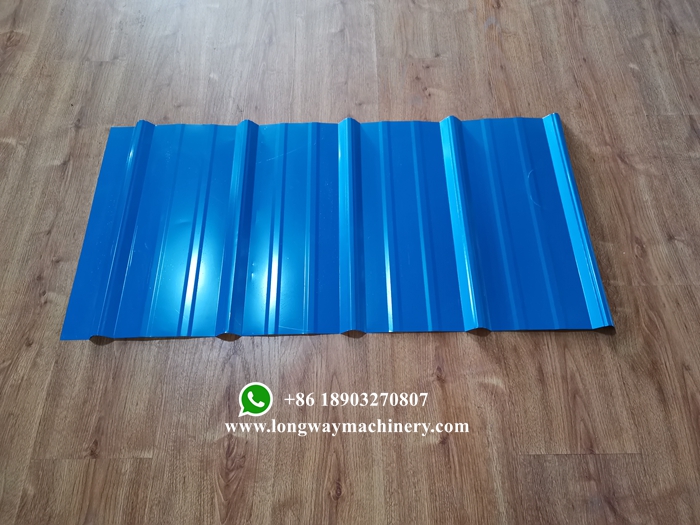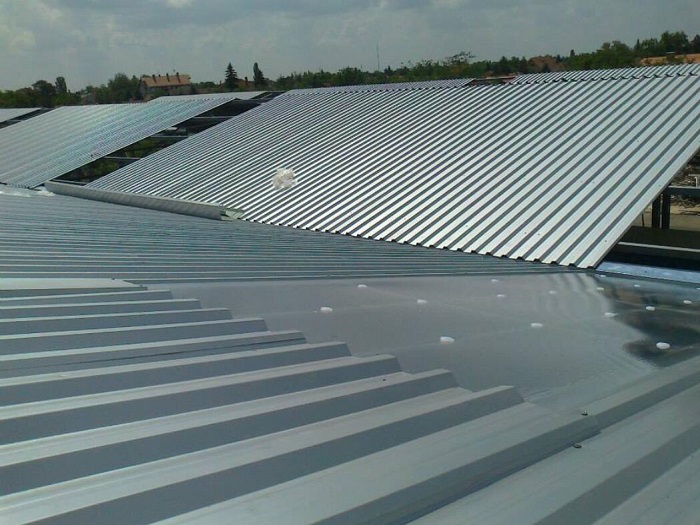High-Quality Corrugated Sheets Roll Forming Machine Reliable Roofing Sheet Production Line
- Introduction to Corrugated Sheets Roll Forming Machine
- Technology Advancements in Corrugated Sheets Making Machines
- Comparative Analysis of Leading Manufacturers
- Customization Opportunities in Box Profile Roofing Sheets Roll Forming Machines
- Application Scenarios and Success Stories
- Maintenance, Efficiency, and Cost-Effectiveness
- Conclusion: Why a Corrugated Sheets Roll Forming Machine Is a Smart Investment

(corrugated sheets roll forming machine)
Introduction to Corrugated Sheets Roll Forming Machine
The corrugated sheets roll forming machine
is a pivotal component in the modern metalworking industry, responsible for shaping flat sheets into structurally robust and aesthetically appealing corrugated profiles. These machines have revolutionized the construction sector by enhancing the speed, consistency, and precision of producing roofing and siding materials. Spanning industries from commercial to residential construction, the demand for high-efficiency corrugated sheets making machines is continually on the rise.
Modern roll forming technology leverages precise engineering, automated controls, and durable tooling materials to maximize output while reducing manual intervention. Recent surveys indicate that more than 65% of industrial metal sheet manufacturing plants have already transitioned to automated roll forming solutions, seeking a blend of cost-effectiveness and product uniformity. As building codes and architectural standards evolve, the need for box profile roofing sheets roll forming machines has grown, highlighting advanced features such as variable widths, fast profile switching, and integrated cutting systems.
Technology Advancements in Metal Sheet Forming
Over the past decade, the technology landscape for corrugated sheets making machines has witnessed substantial progress. Foremost among these is the adoption of PLC-based control systems and servo-driven uncoilers, providing unmatched accuracy in sheet feeding and shaping. Enhanced cutter integration now enables seamless production lines, minimizing material waste and operator errors.
Energy efficiency remains a core focus. Modern box profile roofing sheets roll forming machines often feature variable frequency drive systems, reducing power usage by up to 25% compared to legacy models. Even lubrication processes have been automated, ensuring longer equipment life and consistent surface quality. Digital solutions, including real-time fault detection and remote monitoring, are now industry standards—enabling swift response to operational anomalies and reducing downtime.
These advancements contribute to scalability, allowing facilities to match diverse market requirements dynamically. With rapid tool changeovers, production lines can switch between corrugated and trapezoidal profiles in under 20 minutes, amplifying throughput and broadening the possibilities for tailored applications.
Comparative Analysis of Leading Manufacturers
Choosing the right corrugated sheets roll forming machine is critical for operational success. Below is a comparative table of prominent manufacturers, assessing parameters such as production speed, automation level, material compatibility, and after-sales support:
| Manufacturer | Max Production Speed (m/min) | Automation | Supported Material Thickness (mm) | Profile Types | Warranty (years) | After-Sales Support |
|---|---|---|---|---|---|---|
| RollMex | 40 | Fully Automated | 0.3 - 1.2 | Corrugated, Box, Trapezoidal | 2 | 24/7 Global |
| FormMaster | 35 | Semi Automated | 0.2 - 1.5 | Corrugated, Box | 1 | Business Hours, Regional |
| BuildSheet Tech | 42 | Fully Automated | 0.4 - 2.0 | Corrugated, Tile, Box | 3 | 24/7 Global |
| EliteForm | 38 | Fully Automated | 0.3 - 1.8 | Corrugated, Box, Trapezoidal | 2 | Priority with Remote Diagnosis |
The choice of manufacturer influences not only equipment performance but also operational resilience. For example, BuildSheet Tech offers the broadest material thickness compatibility and longest warranty, catering well to clients with varied architectural projects. Those emphasizing faster production may prefer RollMex or BuildSheet Tech, with respective maximum speeds of 40 and 42 meters per minute. However, after-sales support is equally vital, as seen in EliteForm’s priority response and remote diagnostic assistance—potentially minimizing downtimes and maintaining output consistency.
Customization Opportunities in Roll Forming Solutions
The evolution of building design imposes new demands on sheet profile diversity and functional integration. Manufacturers increasingly offer bespoke corrugated sheets roll forming machine configurations, tailoring every aspect from tooling geometry to line layout and added processes. This flexibility is especially beneficial in niche segments such as colored zinc, insulated sandwich panels, or advanced anti-corrosive coatings.
Common customization options include integrated punching units, variable width adjusters, in-line embossing modules, and specialized decoiler capacities. For example, a custom project for a Middle Eastern client involved developing a roll forming machine that could seamlessly alternate between standard corrugated, box profile, and tile-effect surfaces within a single production run—reducing labor requirements by 30% and enabling rapid design adaptation to changing project specifications.
Digital blueprints and simulation-driven prototyping now expedite custom solution deployment. Manufacturers leverage 3D CAD/CAM systems and finite element analysis (FEA) to validate structural and aesthetic performance before production. This ensures that even highly tailored machines maintain durability and output precision over extended operational cycles.
Application Scenarios and Success Stories
Corrugated sheets making machines are integral to a wide array of modern applications, ranging from industrial roofing, warehouse cladding, and agricultural storage construction, to transportable housing and even solar panel mounting frameworks. International clients have leveraged these machines to achieve outstanding project outcomes.
Case Study 1 – Industrial Warehouse Expansion: A logistics company in Germany adopted a high-speed box profile roofing sheets roll forming machine for expanding its warehouse infrastructure. Production timelines were reduced by 45%, translating into significant cost savings and reduced project overhead.
Case Study 2 – Disaster Relief Shelters: In Southeast Asia, a government partnership deployed mobile corrugated sheets roll forming units for rapid post-disaster housing deployment. The combination of portability and operational speed enabled the completion of 200 shelters within a fortnight.
Case Study 3 – Architectural Renovations: A South American real estate developer incorporated customized machines to fabricate colored and embossed roofing sheets for luxury villas, enhancing property values by delivering both visual appeal and structural performance.
Maintenance, Efficiency, and Cost-Effectiveness
Maximizing machine uptime and cost-efficiency is vital for large-scale operations. Preventive maintenance strategies, powered by predictive analytics and IoT-enabled sensors, are making it easier to spot potential failures before they escalate. Regular lubrication, component inspections, and periodic upgrades collectively prolong the lifespan of roll forming units while maintaining output quality.
According to the latest survey by the Industrial Metal Fabrication Association, facilities employing scheduled maintenance regimes witness 30% lower downtime and up to 18% reduction in annual repair costs. Furthermore, energy-efficient drive systems can recover their initial investment within as little as 18 months via reduced power bills and extended hardware longevity.
Beyond mechanical resilience, operator training plays a critical role. Comprehensive onboarding and continuous learning initiatives ensure safe handling, accurate troubleshooting, and optimized changeover times. Leading machine providers often include digital learning platforms and remote technical support as part of their after-sales package, further enhancing operational sustainability.
Conclusion: The Strategic Value of a Corrugated Sheets Roll Forming Machine
Investing in a corrugated sheets roll forming machine is a forward-thinking decision for manufacturers aiming to combine quality, productivity, and expanded market reach. With unparalleled advances in automation, customization, and reliability, these machines are transforming how steel and aluminum sheets are shaped for a multitude of high-demand applications.
Data-driven selection of equipment and partners, along with an unwavering focus on maintenance and innovation, continues to pay dividends through reduced costs, shorter project timelines, and enhanced product diversity. By aligning capabilities with project requirements, stakeholders across construction, industrial, and architectural domains are leveraging roll forming technology to achieve robust, scalable, and sustainable growth.
As the market for corrugated sheets, box profiles, and tailored roofing solutions expands globally, the importance of adopting high-performance roll forming machinery will only increase, cementing its role as a foundational technology in the modern built environment.

(corrugated sheets roll forming machine)
FAQS on corrugated sheets roll forming machine
Q: What is a corrugated sheets roll forming machine?
A: A corrugated sheets roll forming machine is specialized equipment used to form flat metal sheets into corrugated roofing or siding profiles. It performs continuous bending operations to create uniform waves. This process increases sheet strength and durability for construction uses.
Q: How does a corrugated sheets making machine differ from a box profile roofing sheets roll forming machine?
A: A corrugated sheets making machine produces wavy or sinusoidal sheet profiles. In contrast, a box profile roofing sheets roll forming machine creates trapezoidal, rectangular, or angular profiles. Both machines shape metal for roofing but offer different aesthetics and structural features.
Q: What materials are suitable for use in a corrugated sheets roll forming machine?
A: Common materials include galvanized steel, aluminum, and color-coated steel coils. The machine can process materials in various thicknesses, depending on project requirements. Material compatibility ensures durability and versatility for different roofing applications.
Q: How fast can a corrugated sheets roll forming machine operate?
A: Most machines operate at speeds ranging from 10 to 25 meters per minute. Production speed can vary depending on sheet profile complexity and material thickness. Fast operation increases efficiency for large-scale roofing projects.
Q: Are bespoke profiles available from a box profile roofing sheets roll forming machine?
A: Yes, machines can be customized with different rollers and dies for specific profiles. Custom solutions cater to unique roofing or siding designs. Consult the manufacturer for bespoke requirements and tooling options.
-
Corrugated iron roofing sheet making machine with CE, AutoNewsNov.17, 2025
-
3mm Steel C U Channel Roll Forming Machine, Heavy DutyNewsNov.17, 2025
-
Calamima Micro Ondulada corrugated roof sheet machine - CNCNewsNov.17, 2025
-
Metal Roofing Roll Former for Sale Companies - Fast, PreciseNewsNov.17, 2025
-
Drywall Steel L Angle Bar forming machine | Fast, PreciseNewsNov.17, 2025
-
Corrugated Iron Roofing Sheet Making Machine, Fast & DurableNewsNov.11, 2025
-
Corrugated Metal Roofing Machine | High-Speed, Precise, CENewsNov.11, 2025







